Introduction
To succeed in managing capital gains tax as a business owner and improve financial results is important to grasp the nuances involved with long term and short term capital gains differences can greatly affect taxes owed and shape decision making strategies significantly in this piece of writing looks into different approaches that can be used to reduce capital gains tax liabilities such as utilizing retirement accounts, with tax benefits and looking into the advantages of Opportunity Zones.
By using these strategies successfully implement their tax responsibilities. Improve their financial security can entrepreneurs do so effectively? Furthermore "essential assistance”, in personalizing these approaches to situations is highlighted in the article to guarantee ideal outcomes... Thinking about selling a company or preparing for financial benefits. These perspectives offer essential resources for attaining financial wisdom and prosperity.
Understanding Long-Term vs. Short-Term Capital Gains
Earnings obtained from selling assets are referred to as investment returns. 'Can be classified as either long term or short term profits depending on how long the assets were retained prior to being sold. Long term profits apply to assets held for more than a year and typically incur lower tax rates, making them a favored option for sellers. In contrast, prompt profits arising from assets held for a year or less are taxed as income and can significantly affect your tax responsibilities.'. It's crucial, for business owners to grasp these differences if they want to reduce their tax obligations when selling their business.
The IRS wants to tax capital gains until you sell the asset to make things simpler and reduce paperwork for everyone involved. If you purchase a stock at $100 and its value rises to $150 in a years time. You won't have any financial obligations until you choose to sell the stock and realize your profits.
When considering financial obligations and how they might impact you economically in the future, it's essential to plan thoughtfully and with caution. One method to consider is engaging in a tax stock swap, where you trade your stock for shares in a different company. This strategy can be a method to obtain a new enterprise without needing to invest money initially and postpone paying profit-related taxes. For individuals operating their enterprises selling assets one by one can help stabilize yearly income and handle tax responsibilities in a smoother manner.
It's an idea to consider hiring a tax advisor to help you navigate the complexities and customize strategies for your unique situation It's important to stay informed and seek guidance, from professionals as selling investments can lead to a tax bill that impacts your financial results considerably.
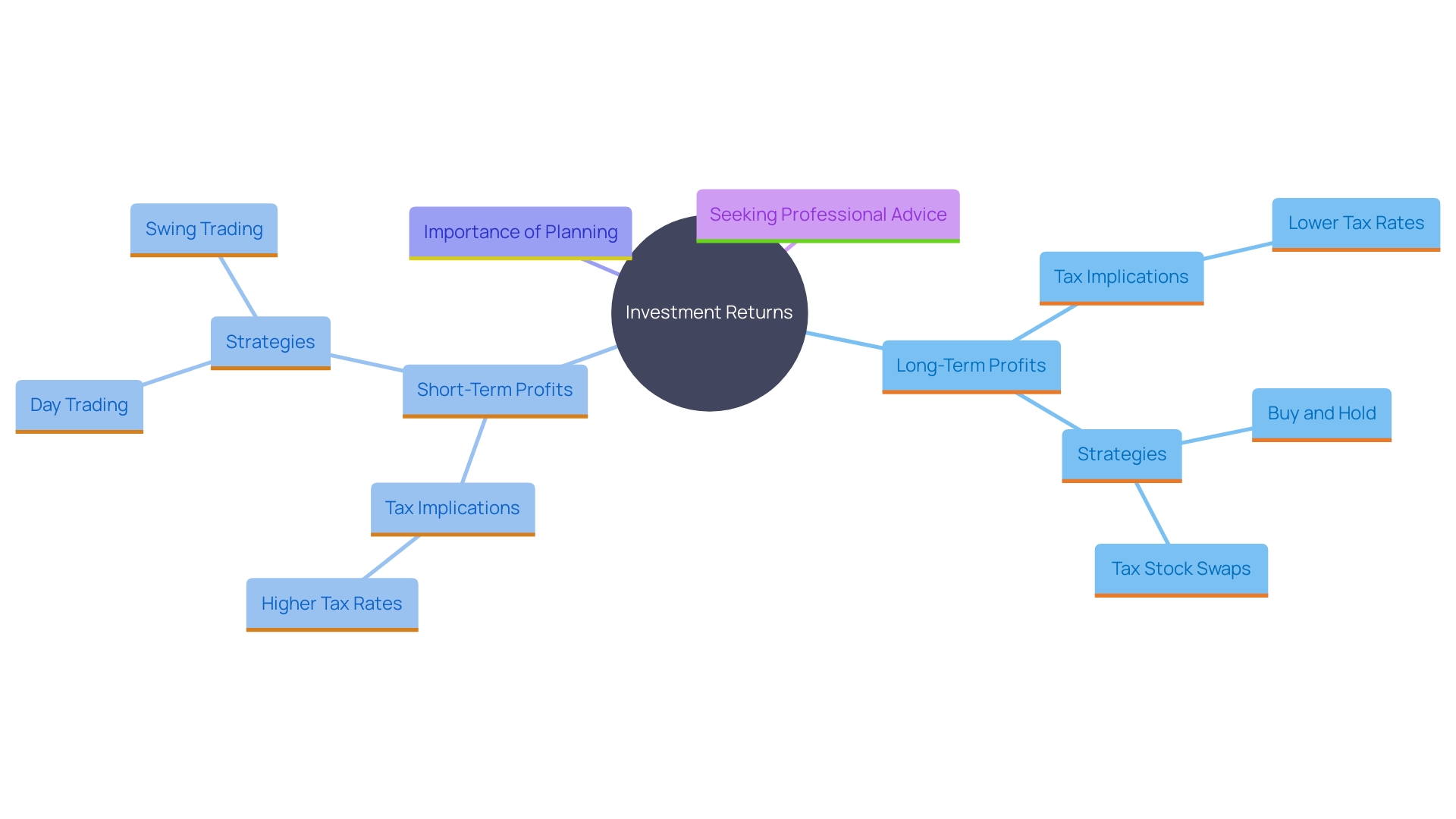
Strategies to Avoid Capital Gains Tax
Applying strategies to lower capital gains taxes can significantly ease the financial pressure on entrepreneurs and company owners alike. Through preparation and utilizing existing opportunities effectively a preferable tax result can be attained. One successful approach involves participating in tax stock trades, where one company trades its stocks for those of another entity. This strategic maneuver can streamline acquisitions without the need for cash investments. Considering a method includes seeking assistance from a tax consultant to help you adjust your setup to maximize tax advantages when planning for a potential sale, in the future. For proprietors specifically; dividing the sale of assets individually may aid in sustaining consistent yearly profits and controlling taxable income levels effectively. Moreover; transferring ownership of your enterprise to employees using installment sales or employee stock ownership schemes could offer tax benefits. By applying these strategies with preparation in advance; business owners are able to effectively handle the complexities of tax rules regarding profits.
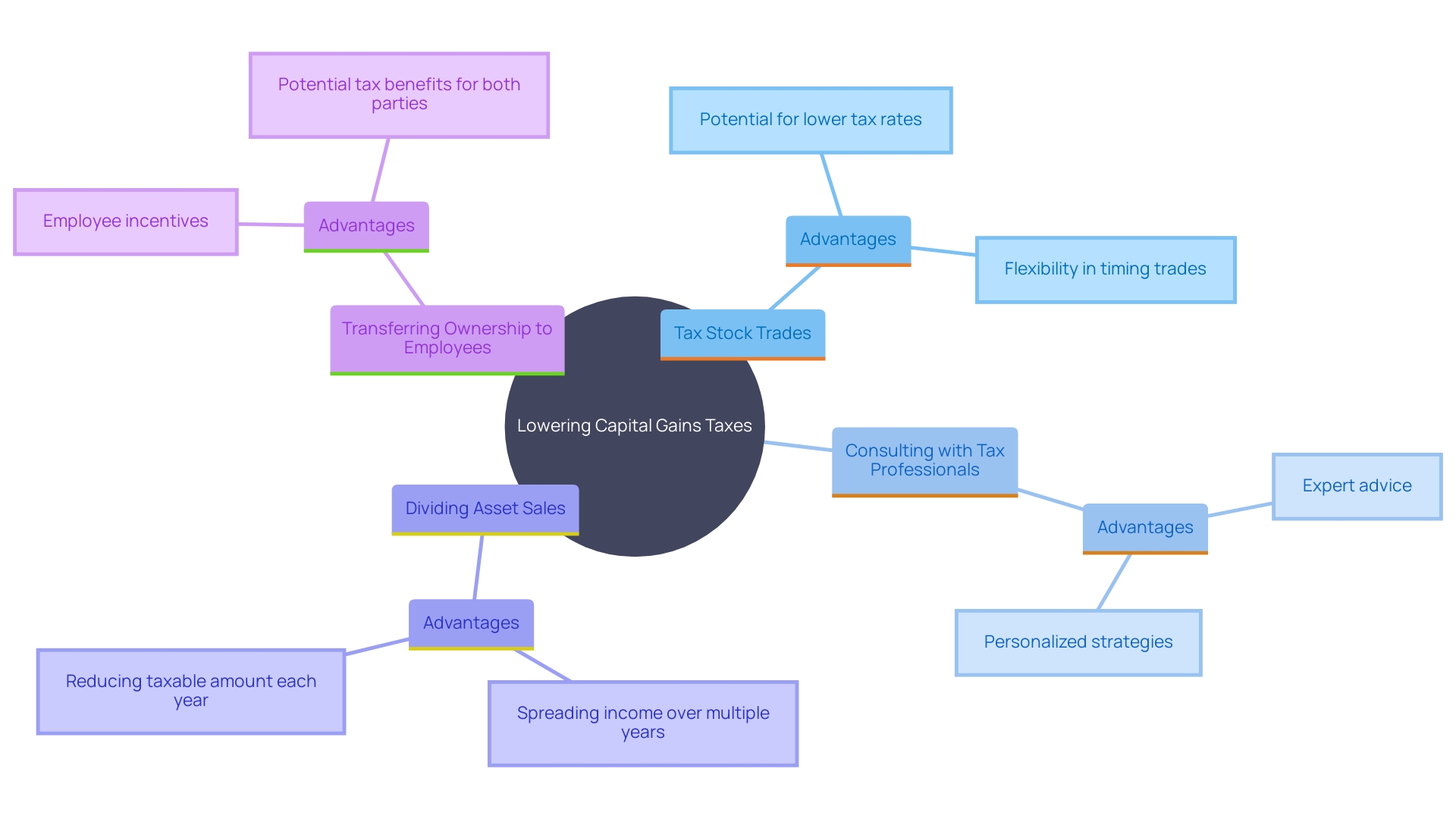
Utilize Tax-Advantaged Retirement Accounts
Utilizing tax-advantaged retirement savings alternatives like IRAs or 401(k)s can be a tactic to lessen tax consequences when unloading a commercial endeavor. By directing your funds into these accounts for investment purposes the profits can accumulate without tax obligations until you withdraw them. This approach not delays the upfront tax burden but also allows your money to increase over time. Vlad Rusz, from Centaur Digital Corp advises weighing the advantages of tax benefits alongside the reliability of these investment avenues. He mentions that although many investments provide immediate tax advantages and instead emphasizes the importance of long term growth and tax deferral strategies that can have a notable impact on finances greatly during periods of unexpectedly high earnings. In a case study with Wendy, from Ontario—a business proprietor—who takes advantage of reduced taxes on her business revenue by channelizing it through a corporation to secure retirement savings opportunities. Employing this method along with a comprehension of the importance of real estate can provide substantial benefits including tax advantages and safeguarding against inflation when it comes to effectively managing financial profits.
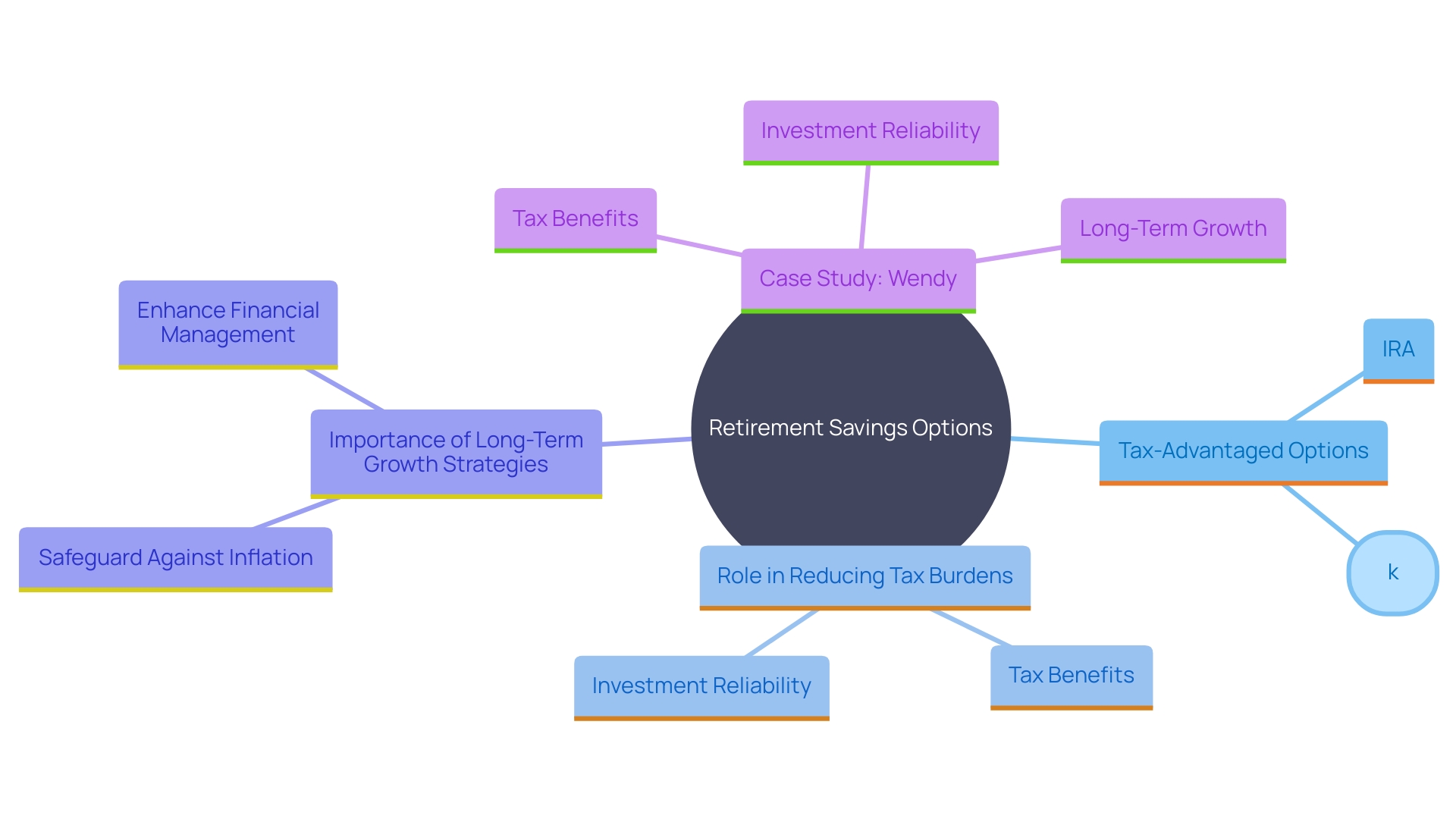
Offset Capital Gains with Capital Losses
An effective method to reduce taxes on profits from investments is via tax loss harvesting – a strategy where you dispose of underperforming assets to counterbalance the profits obtained from successful sales and lower your overall tax obligation for improved financial results. It's essential to recognize that while loss harvesting has its advantages in lowering liabilities for entrepreneurs and enhancing returns on investments; there are risks involved such as increased expenses, with investments and potential unexpected financial consequences to consider thoroughly before moving forward with this approach. It's an idea to seek advice, from a tax consultant to help you understand these intricacies and make sure your plan matches your financial objectives.
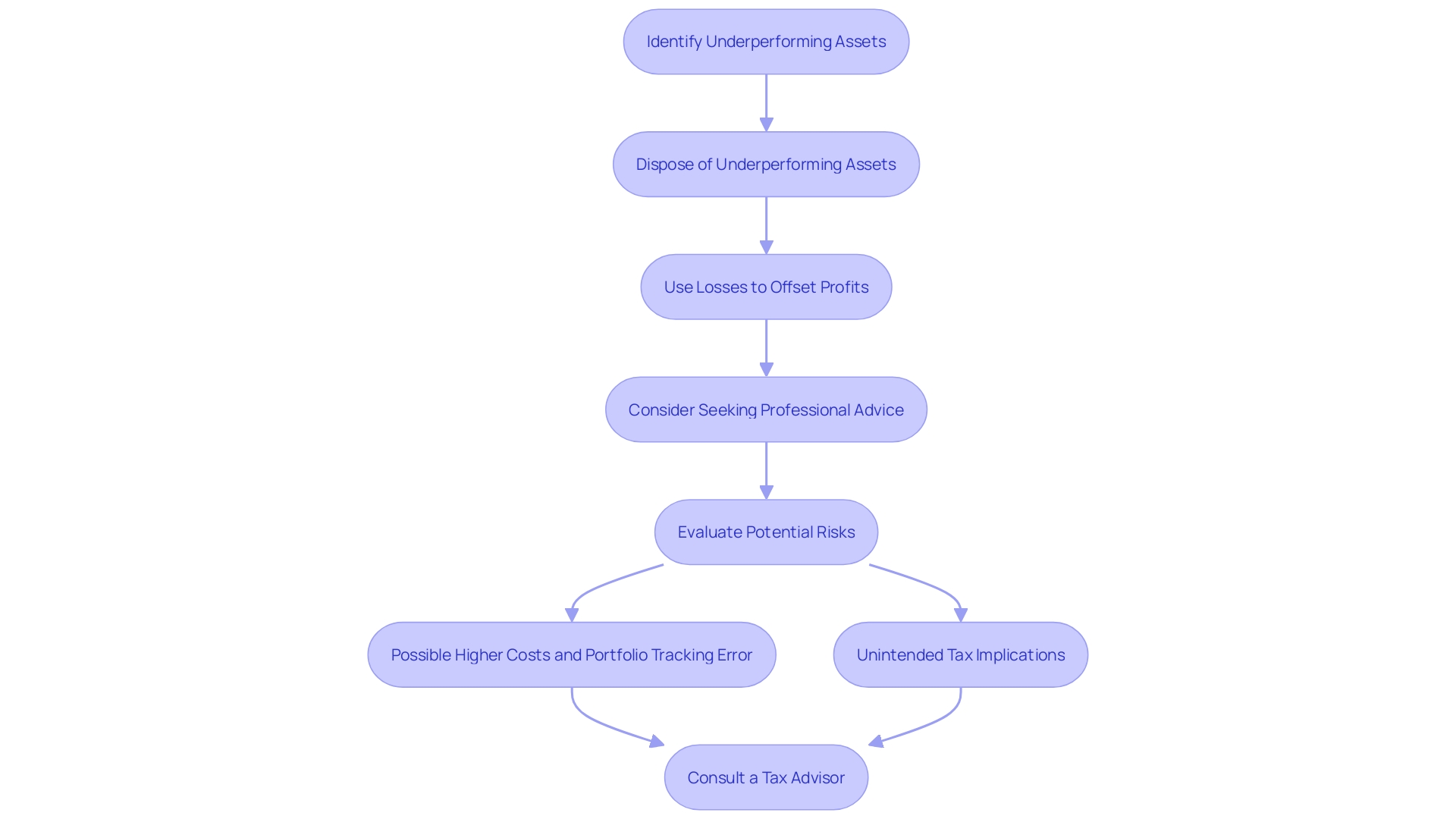
Consider Opportunity Zones
The concept of investing in Opportunity Zones was brought about by the Tax Cuts and Jobs Act in 2017 to encourage economic growth in certain communities by providing attractive tax benefits to investors who channel their profits into approved Opportunity Zone funds (QOFs). By utilizing this approach, owners of enterprises could postpone settling on profits from investments and might even entirely evade them if they hold the asset for at least a decade. While certain provisions are slated to end within the three years creating a sense of urgency around QOF investments due, to the impending deadline. Given that these areas were established to stimulate job creation and boost progress they offer investors a special chance to make money while also aiding in local development. Time is of the essence however the possible benefits make it an enticing choice, for astute entrepreneurs wanting to optimize profits and back their neighborhoods.
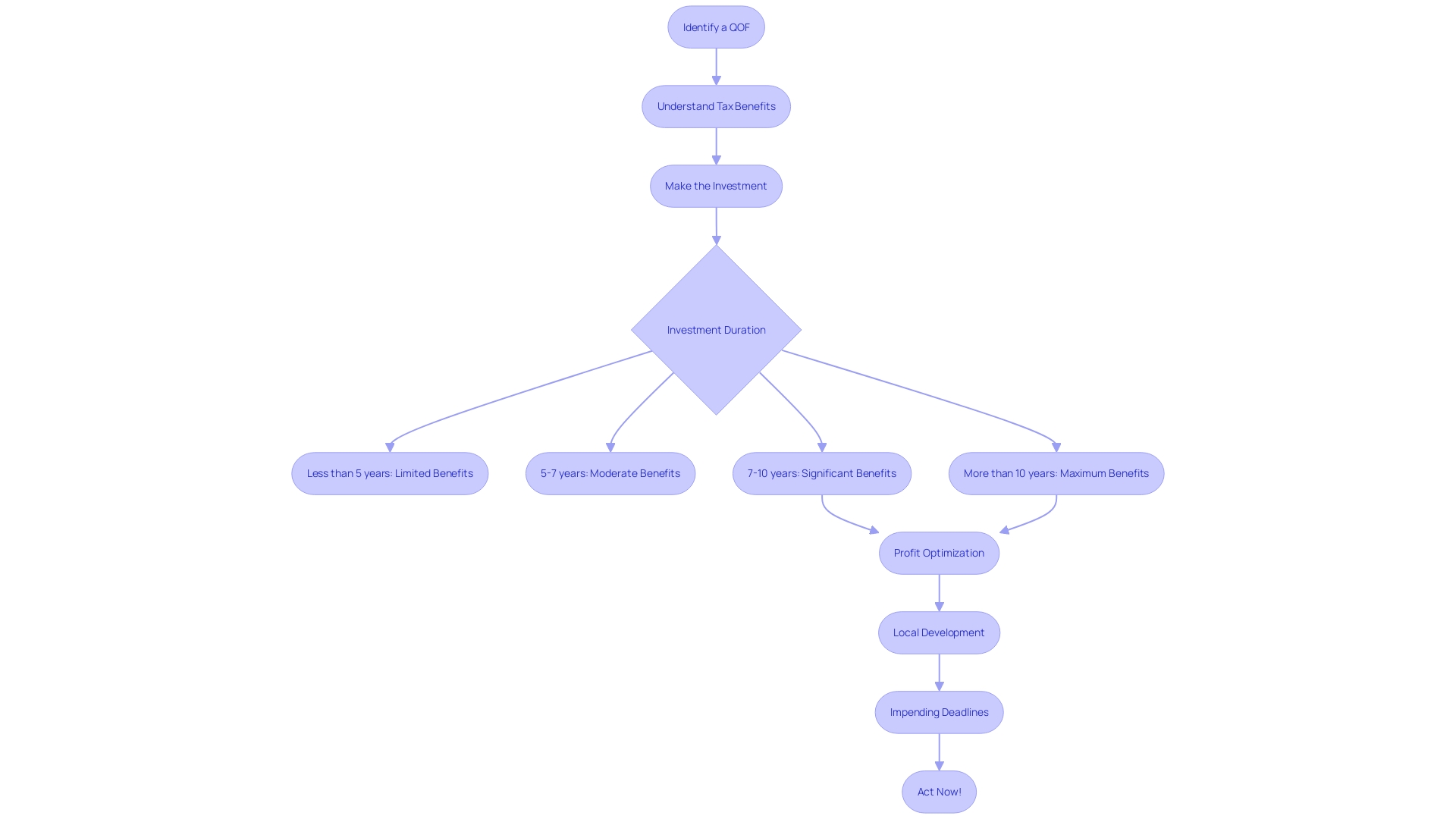
Take Advantage of Primary Residence Exclusions
When someone sells their home that they've inhabited for a while as their primary dwelling before selling it can help reduce the amount of money a business owner needs to pay on their profits from the sale of the property. By meeting requirements and conditions set by the law, individuals are able to avoid fees on earnings up to $250k, whereas married couples can exclude double that amount at $500k. This special benefit is only available to homeowners who have lived in and owned the property as their residence for at least two years, out of the last five years before selling it. This exception could provide assistance for individuals navigating a market characterized by steep mortgage rates and housing expenses when moving to a new property becomes more manageable financially due to this relief measure being in place. According to the government's tax equity initiative guidelines, Canadians are only required to pay taxes on 50% of their profits from investments—a factor that proves beneficial during the computation of investment profits tax. Though this exemption offers advantages, it is essential to consider the possible influence of elements such as cost allowance and other pertinent deductions on the total expense of the property. These changes can help maximize tax benefits and make sure that entrepreneurs keep a portion of their earnings that they worked hard for.
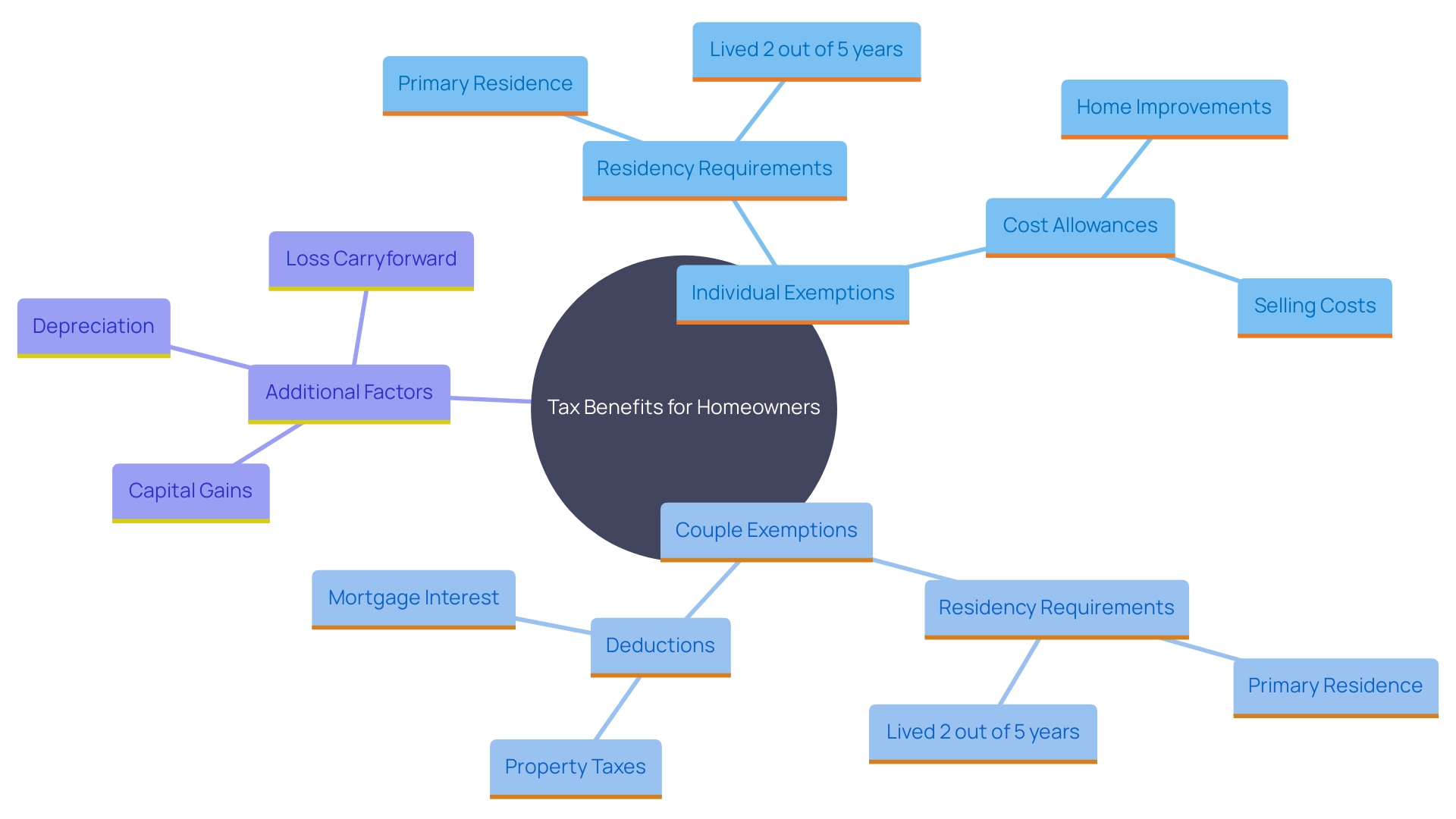
Itemize Expenses and Maximize Deductions
To capital gains tax further for owners' sales efforts strategically by listing expenses carefully and making the most of deductions tied to selling the enterprise is vital. This may entail expenditures like consulting fees and legal costs among others. By detailing these deductions thoroughly owners can notably lessen the taxable portion of their profits. For instance, with the 2017 Tax Cuts and Jobs Act, a 20 percent deduction on corporate tax was introduced, which allows enterprises to deduct as much as 20 percent of their eligible revenue, resulting in significant savings. Knowing the variance, between tax deductions and tax credits is essential because deductions lower your income whereas credits lower the overall tax you owe. This detailed understanding can result in tax savings and help smoothen the financial transition when selling a business.
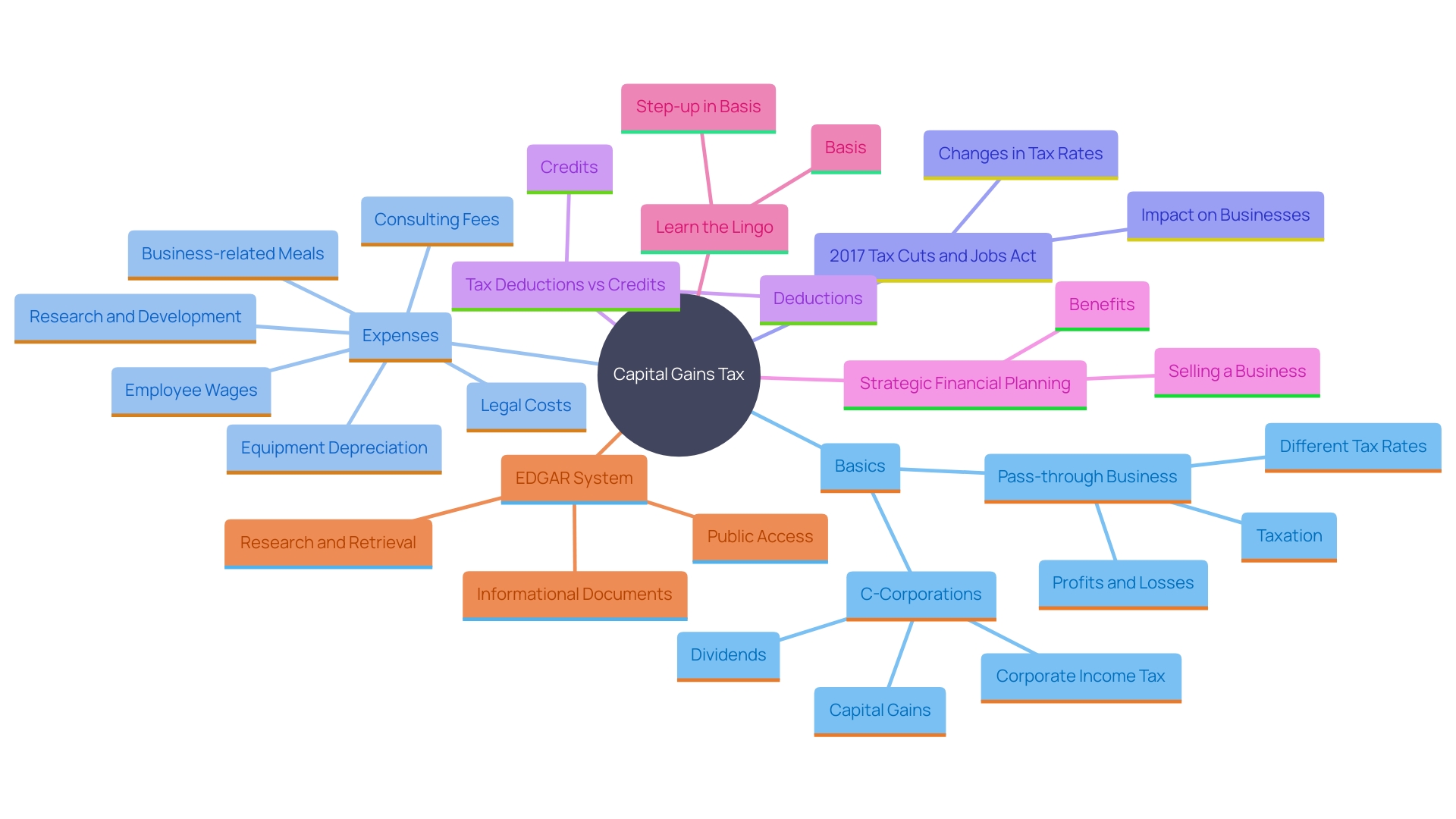
Conclusion
Understanding the ins and outs of capital gains tax is crucial for entrepreneurs looking to improve their situation. Distinguishing between term and short term capital gains is key to managing taxes effectively. By holding onto assets for, than a year business owners can greatly lessen their tax obligations.
Furthermore utilizing tactics like exchanging stocks for tax purposes or seeking advice, from a tax consultant can offer customized options that match the unique needs of each business situation.
Taking steps like using retirement accounts that offer tax benefits and looking into Opportunity Zones can help decrease the impact of capital gains taxes even more effectively. These approaches not defer taxes but also open up opportunities for investment growth in the long run. Moreover gain offsetting with losses, through tax loss harvesting offers another way to lower tax obligations; however this requires assessment of potential risks involved.
Homeowners can also take advantage of the primary residence exclusions to exclude portions of their profits from taxes when they sell their homes.This financial help is vital in tough housing markets.Additionally keeping records and staying updated on tax laws can result in substantial tax savings through itemizing expenses and maximizing deductions, for business owners.
By utilizing these tactics and consulting with experts in the field of finance and taxation entrepreneurs are able to manage the complexities surrounding capital gains tax. This method not protects the profits they have worked hard to earn but also establishes a solid foundation for achieving long term financial prosperity and security. Embracing these possibilities gives business owners the confidence to make informed choices that can enhance their financial well being, in the future.




